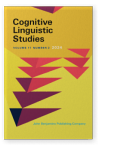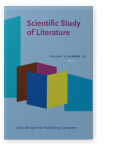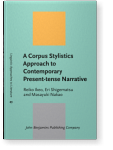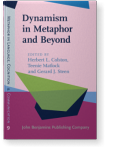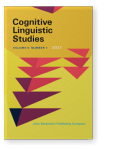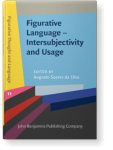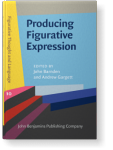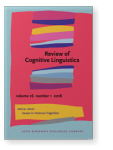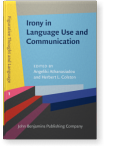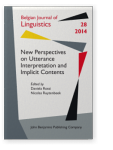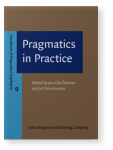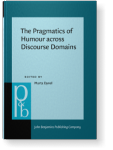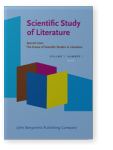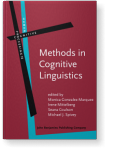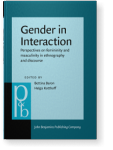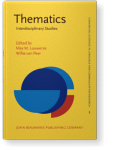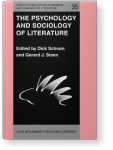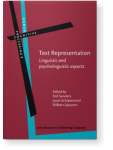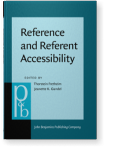Rachel Giora
List of John Benjamins publications for which Rachel Giora plays a role.
Journals
Book series
ISSN 2405-6944
2022 Defaultness vs. constructionism: The case of default constructional sarcasm and default non-constructional literalness Dynamism in Metaphor and Beyond, Colston, Herbert L., Teenie Matlock and Gerard J. Steen (eds.), pp. 305–324 | Chapter
Default responses play a major role in affecting processing, pleasantness, and cueing of nondefault alternatives. Default responses are activated automatically, initially and directly, faster than nondefault counterparts, irrespective of degree of negation, novelty, nonliteralness, or contextual… read more
2021 The defaultness hypothesis: Affirmative sarcasm, negative sarcasm Cognitive Linguistic Studies 8:1, pp. 1–15 | Article
This paper demonstrates that, when interpretation is at stake, it is only degree of defaultness that matters. Neither degree of Negation, nor degree of Affirmation, nor equal degree of Novelty, nor equal degree of Literalness/Nonliteralness, nor equal strength of Contextual support, whether… read more
2021 On figurative ambiguity, marking, and low-salience meanings Figurative Language – Intersubjectivity and Usage, Soares da Silva, Augusto (ed.), pp. 241–284 | Chapter
This paper discusses the phenomenon of marked ambiguation, when more than one meaning of an ambiguity is simultaneously applicable, and outlines an account for such marking within the Low-Salience Marking Hypothesis. According to this hypothesis, ambiguity markers (e.g., double entendre, in the… read more
2020 How defaultness shapes our language production: A usage-based study of discoursal resonance with default interpretations of metaphor and sarcasm Producing Figurative Expression: Theoretical, experimental and practical perspectives, Barnden, John and Andrew Gargett (eds.), pp. 211–236 | Chapter
The paper focuses on discourse production. It shows that language production unfolds via resonating (Du Bois, 2014) with default interpretations. Default interpretations are defined as automatic responses. However, for an automatic response to be considered a default, it has to be (i) novel;… read more
2018 Strongly attenuating highly positive concepts: The case of default sarcastic interpretations Issues in Humour Cognition, Dynel, Marta (ed.), pp. 19–47 | Article
What are the constraints rendering stimuli, such as Alert he is not; He is not the most organized person around; Hospitality is not his best attribute; Do you really believe you are sophisticated? sarcastic by default? Recent findings (Filik, Howman, Ralph-Nearman, & Giora, in press; Giora et al. read more
2017 Chapter 10. Defaultness shines while affirmation pales: On idioms, sarcasm, and pleasure Irony in Language Use and Communication, Athanasiadou, Angeliki and Herbert L. Colston (eds.), pp. 219–236 | Chapter
The Defaultness Hypothesis (Giora et al., 2015c) maintains that it is Defaultness that reigns supreme, superseding all factors known to affect processing initially, such as degree of Non/literalness, Nonsalience, Context strength, or Affirmation. Here we focus on weighing degree of Defaultness… read more
2014 Resonating with default nonsalient interpretations: A corpus-based study of negative sarcasm New Perspectives on Utterance Interpretation and Implicit Contents, Rossi, Daniela and Nicolas Ruytenbeek (eds.), pp. 3–18 | Article
Based on natural language use, we examine the contextual environment of some negative constructions (e.g., Punctuality is not her forte/best attribute). Previous findings show that, as predicted by the view of default nonliteral interpretations, such negative constructions are interpreted… read more
2011 Irony Pragmatics in Practice, Östman, Jan-Ola and Jef Verschueren (eds.), pp. 159–176 | Article
2011 Will anticipating irony facilitate it immediately? The Pragmatics of Humour across Discourse Domains, Dynel, Marta (ed.), pp. 19–32 | Article
This research paper reports findings of eight studies looking into the processes involved in making sense of context-based (ironic) versus salience-based (nonironic) interpretations, the latter relying on the lexicalised and cognitively prominent meanings of the utterances’ constituents. The aim of… read more
2011 In defense of commonality The Future of Scientific Studies in Literature, pp. 104–112 | Article
Looking into our individual differences, either as a group (e.g., women; Israelis who support boycotts of Israel) or as a particular human being is important and interesting. Despite assuming commonalities, the persistent quest for the uniqueness of the individual, however, is instrumental in… read more
2007 Experimental methods for studying the mental representation of language Methods in Cognitive Linguistics, Gonzalez-Marquez, Monica, Irene Mittelberg, Seana Coulson and Michael J. Spivey (eds.), pp. 302–322 | Article
2002 Theorizing gender: Feminist awareness and language change Gender in Interaction: Perspectives on femininity and masculinity in ethnography and discourse, Baron, Bettina and Helga Kotthoff (eds.), pp. 329–347 | Article
2002 15. Masking one’s themes: Irony and the politics of indirectness Thematics: Interdisciplinary Studies, Louwerse, Max M. and Willie van Peer (eds.), pp. 283–300 | Chapter
2001 Irony and its discontent The Psychology and Sociology of Literature: In honor of Elrud Ibsch, Schram, Dick and Gerard J. Steen (eds.), pp. 165–184 | Article
2001 Lexical access in text production: On the role of salience in metaphor resonance Text Representation: Linguistic and psycholinguistic aspects, Sanders, Ted J.M., Joost Schilperoord and Wilbert Spooren (eds.), pp. 111 ff. | Article
2000 Irony Handbook of Pragmatics: 1998 Installment, Verschueren, Jef, Jan-Ola Östman, Jan Blommaert † and Chris Bulcaen (eds.), pp. 1–20 | Article
1996 Written Discourse Segmentation: The Funtion of Unstressed Pronouns in Mandarin Chinese Reference and Referent Accessibility, Fretheim, Thorstein and Jeanette K. Gundel (eds.), pp. 113 ff. | Article
